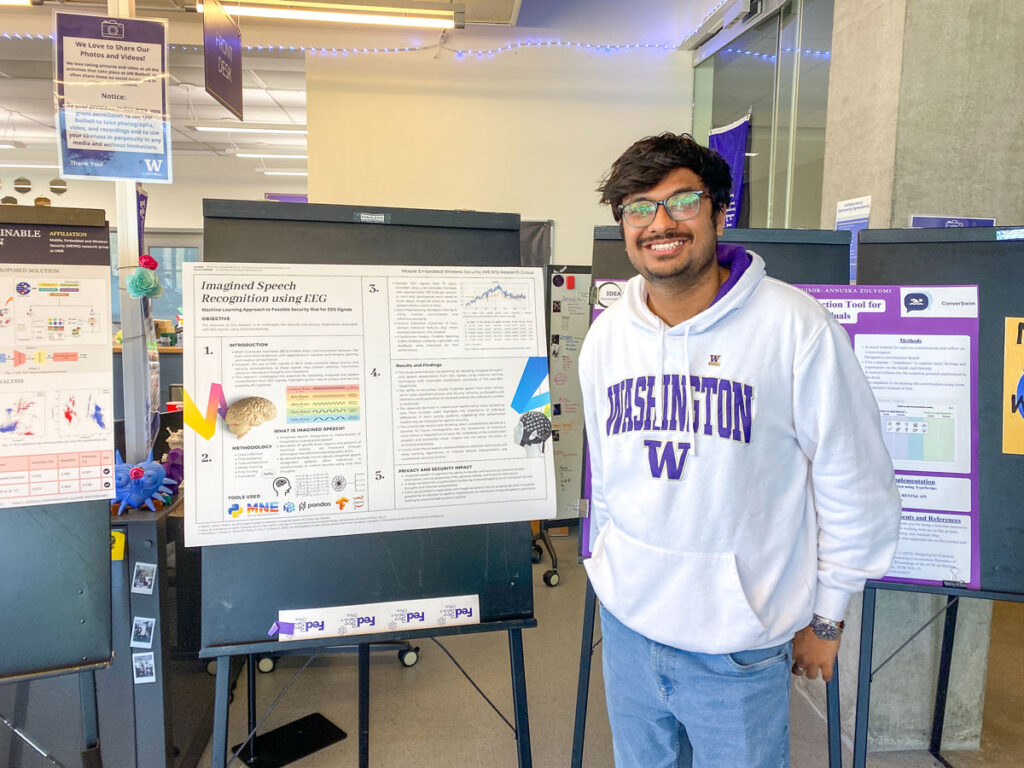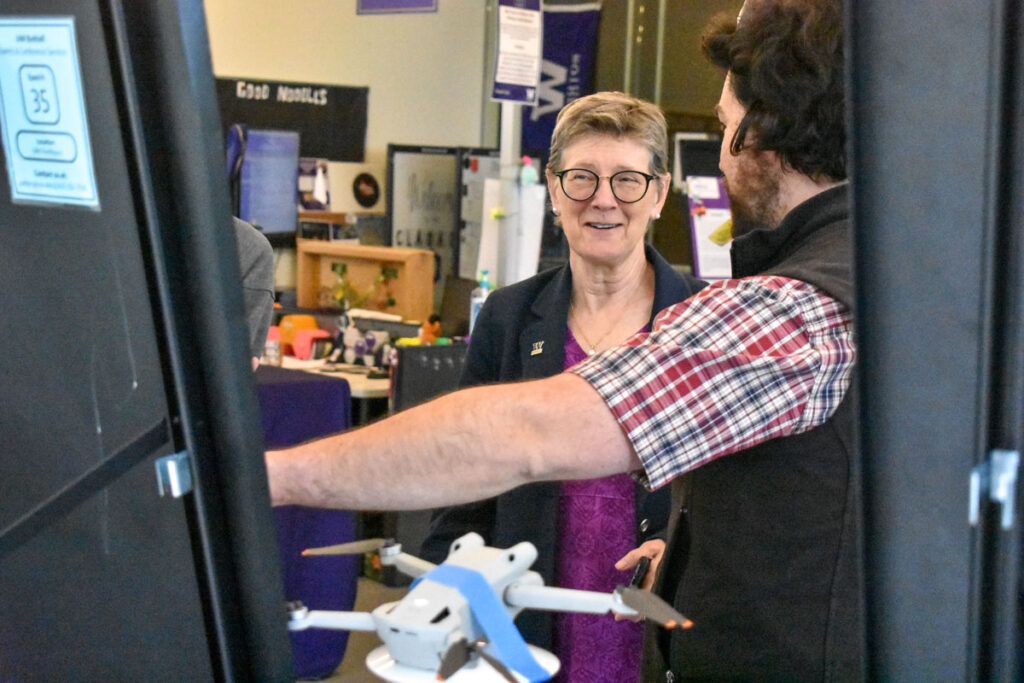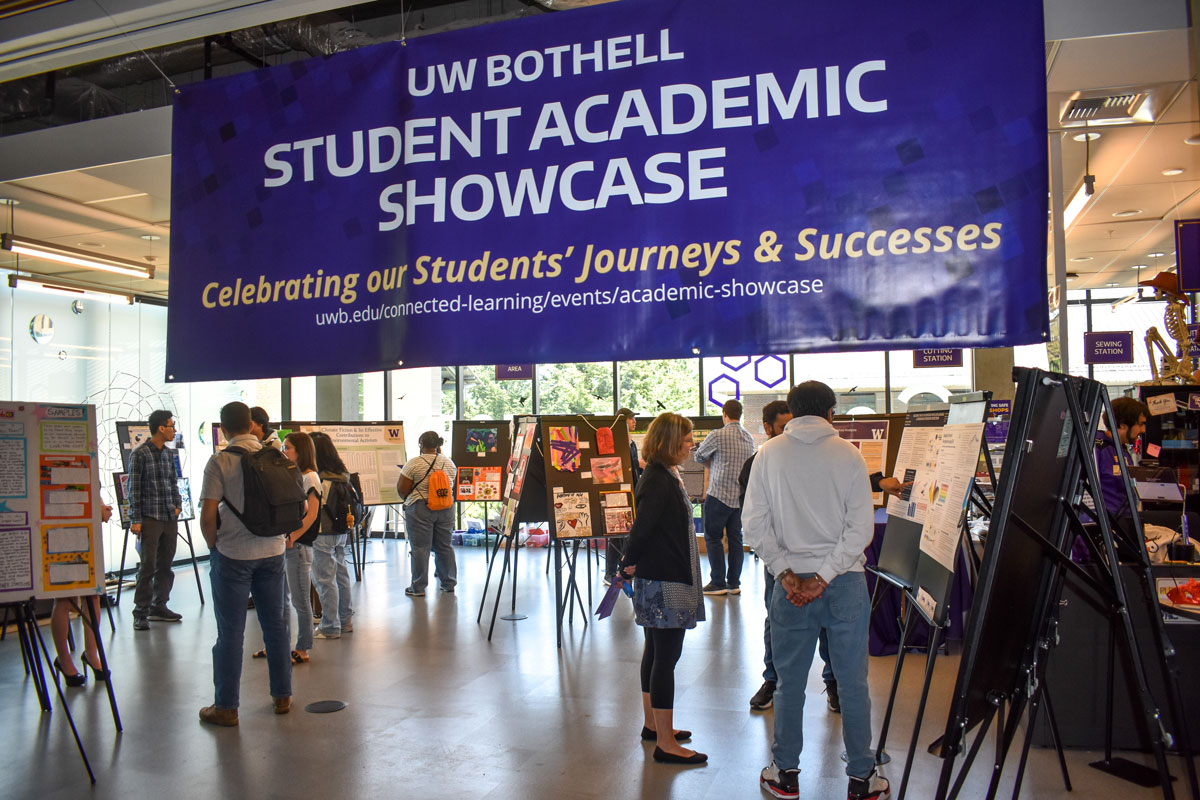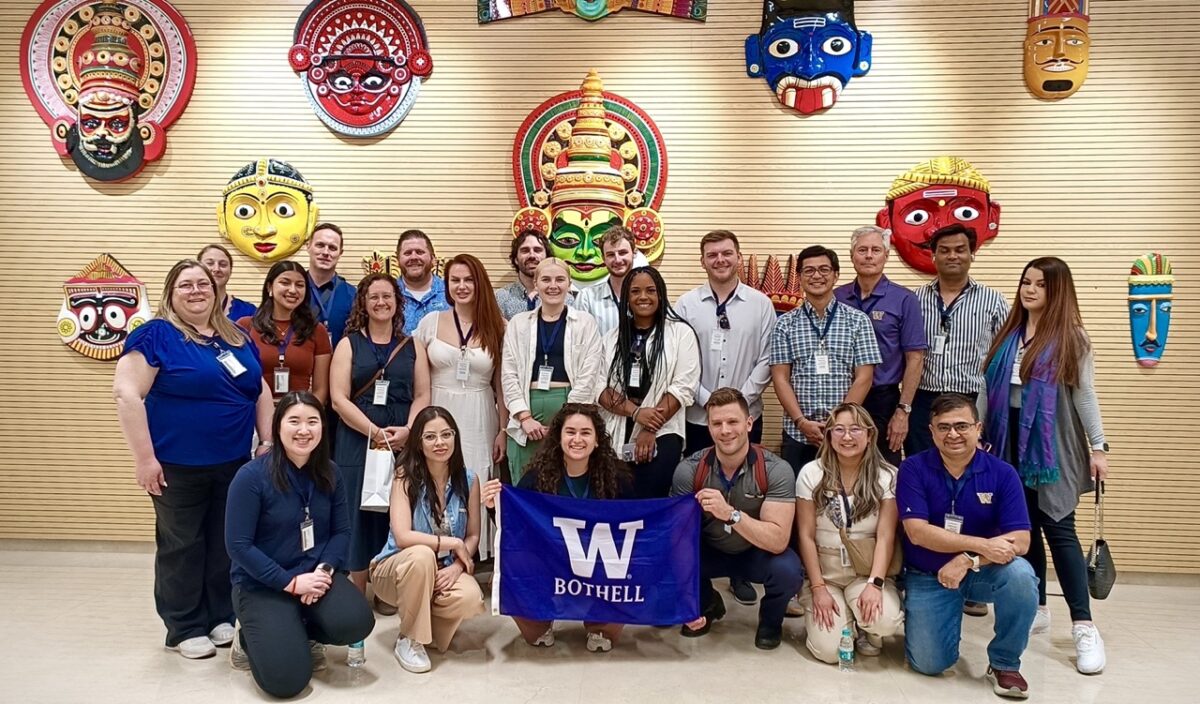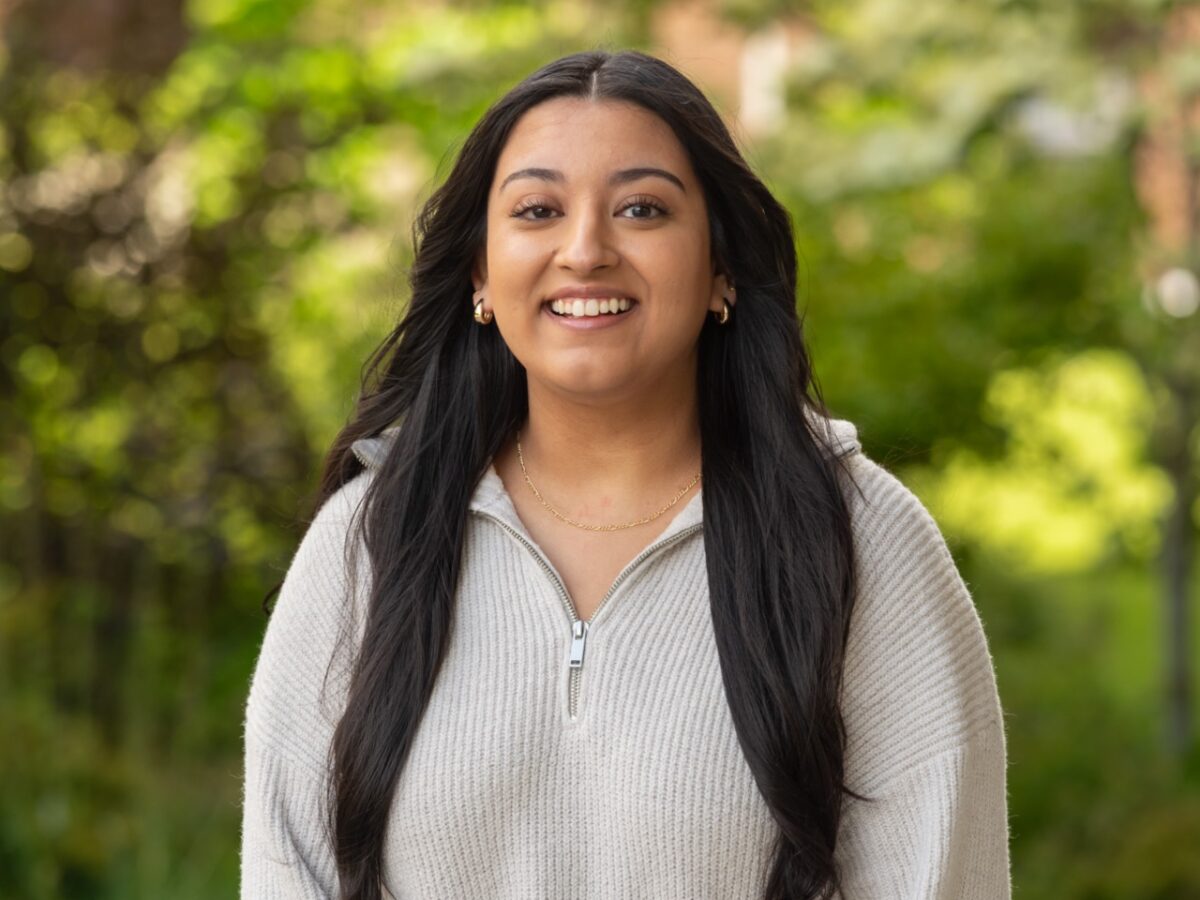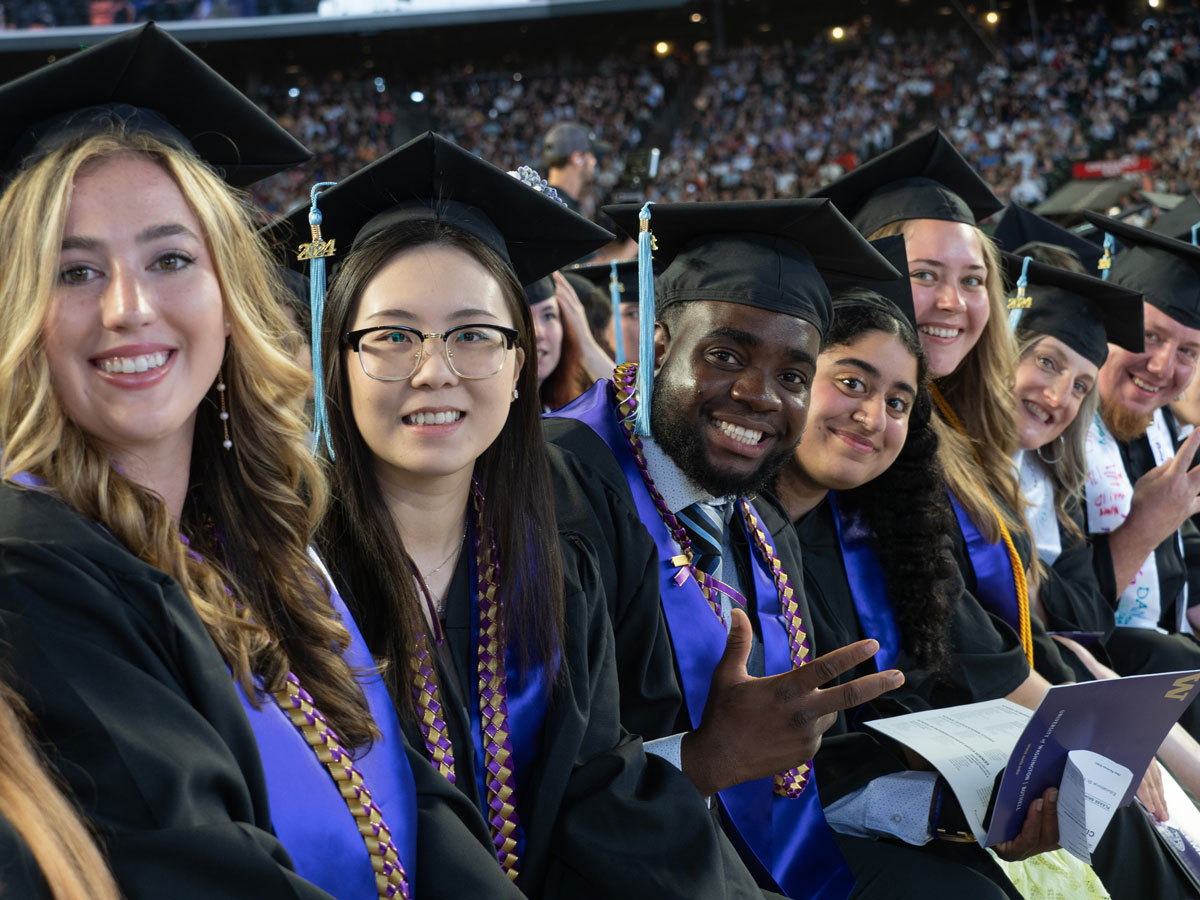With the end of the academic year comes many opportunities for celebrating student work and scholarship. In an event that spanned many spaces across campus from May 10-16, the University of Washington Bothell hosted its second annual Student Academic Showcase to feature research and capstone projects.
This 2024 event was an expansion of last year’s single-day event and included student-led talks and exhibitions, oral and poster presentations, artwork displays and a film screening at the opening reception.
More than 70 students, representing areas of study from all five schools at UW Bothell, presented on everything from “In’s and Out’s of Critical Race Theory” to “Imagined Speech Recognition through EEG Waves.”
Another addition to this year’s event was Data Day, which featured guest speakers, panels, workshops and student presentations on topics such as “The Impact of Minimum Wage on Living Standards in Washington State” and “Different Factors Impacting Car Crashes in Seattle.”
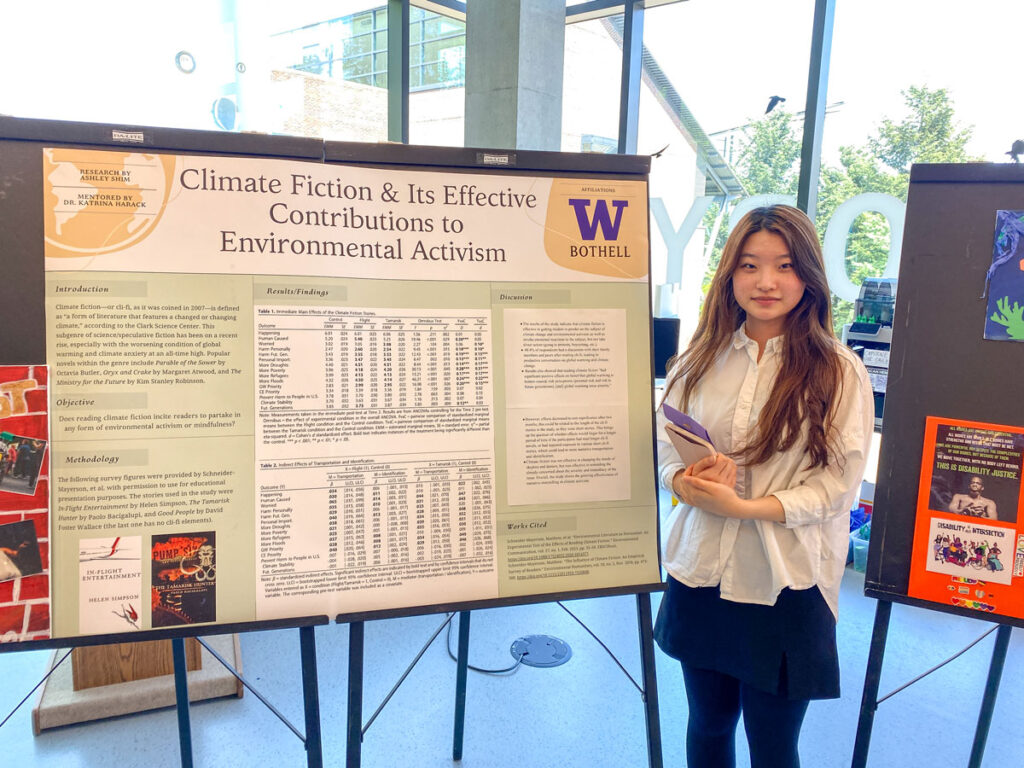
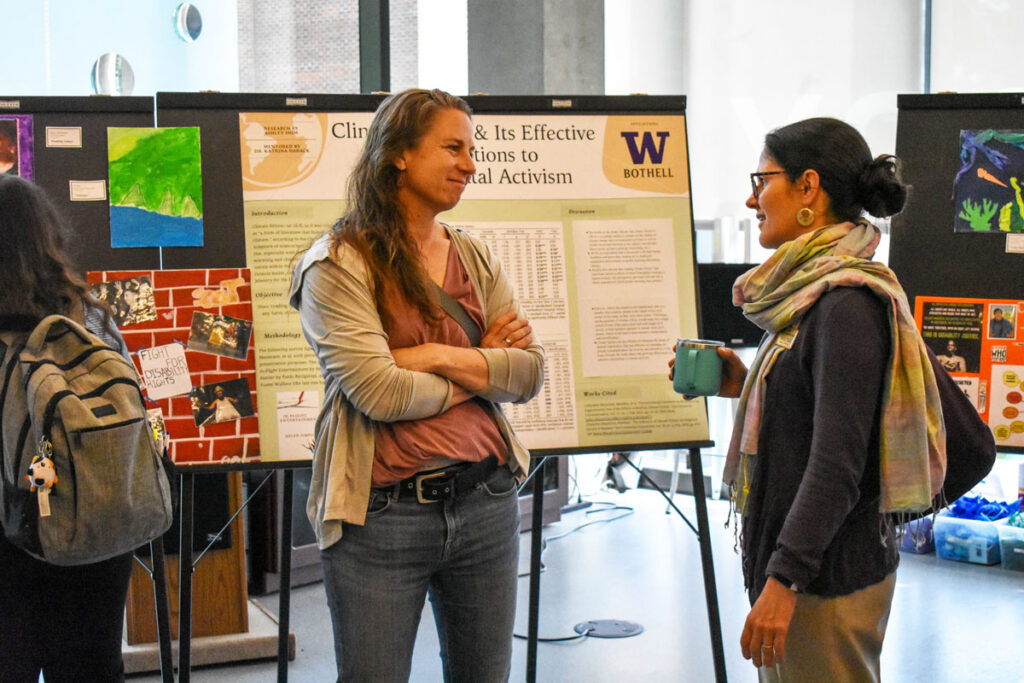
The power of storytelling
Under the mentorship of Dr. Katrina Harack, lecturer in the School of Interdisciplinary Arts & Sciences, second-year pre-major Ashley Yekyum Shim presented on the power of storytelling through her research project, “Effectiveness of Climate Fiction on Environmental Activism.”
A subgenre of science fiction, climate fiction refers to literature that features a changing or changed climate. As the impacts of climate change worsen, works in this area have become increasingly popular and range from the dystopic to the hopeful through speculative narratives about what the future might hold.
In her research, Shim analyzed studies on the use of climate fiction — often referred to as cli-fi — as a tool for inspiring environmental activism and mindfulness around climate issues.
“My environmental humanities class got me thinking about whether climate fiction is impactful and whether literature and the humanities could help in the fight toward making regular people more mindful about the environment, not just through facts and numbers,” Shim said. “I wanted to see if we could use empirical evidence to show that literature has a part to play in helping these movements.”
Shim noted that while the data didn’t show a change in belief for climate skeptics and deniers, climate fiction proved effective in invoking an emotional response for those who were already mindful about climate change.
“For some, it was a reminder of the little things they can do in their daily lives to support environmental activism,” she said.
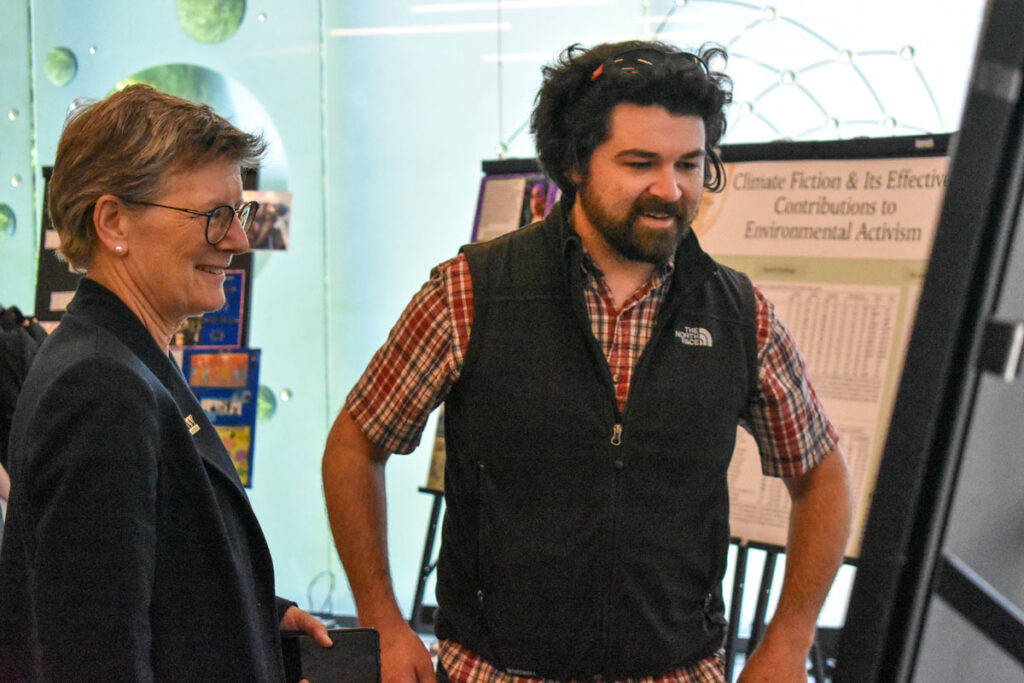
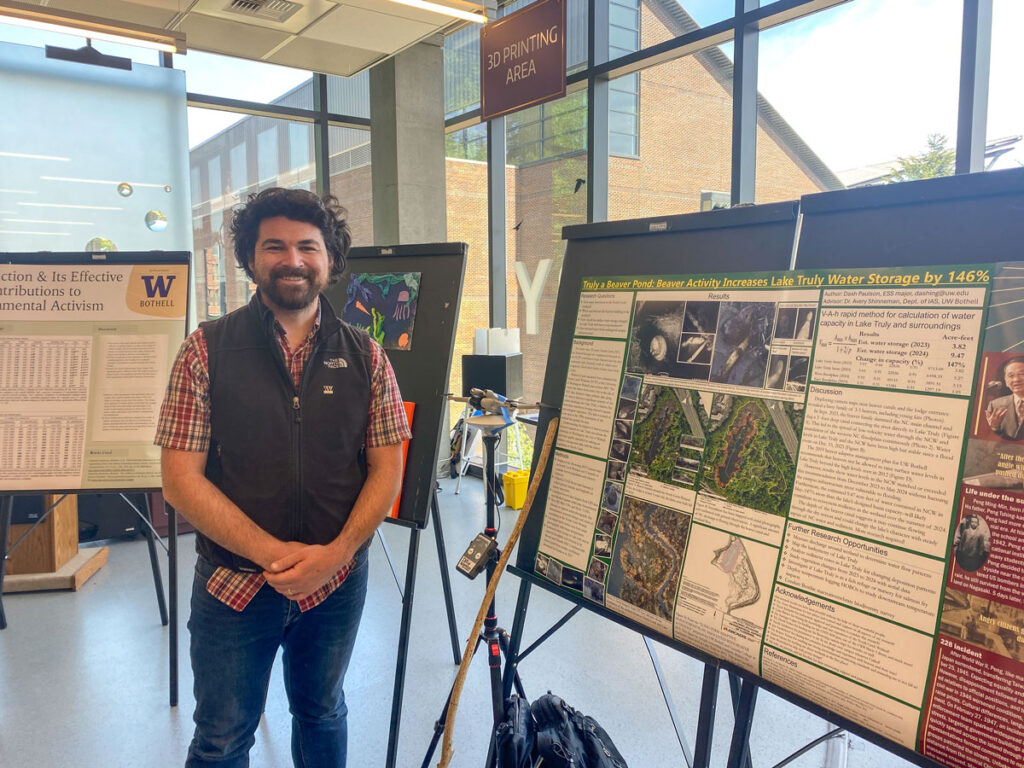
Letting nature run its course
While beavers are known to be instrumental in managing water levels in rural and wildland environments, their role in urban ecosystems is a complicated one.
There’s a lot that can go wrong, said Dash Paulson, a fifth-year student majoring in Earth System Science. Monitoring and managing the efforts of beavers working to stem the flow of water in urban parks — such as UW Bothell’s 58-acre campus wetland — can take a great deal of time and effort.
So when the campus grounds and wetland teams decided to try something different and leave the beavers to their work, Paulson was intrigued to see what would happen.
Under the mentorship of Dr. Avery Shinneman, associate teaching professor in the School of IAS, Paulson began work on his research project, “Impacts of Beaver Activity on Water Storage and Water Quality in the North Creek Wetland.” Over eight months, he monitored beaver activity in the wetland using remote sensing, camera traps, drone footage and geographic information system technology.
“We’ve found that sometimes the best thing is just to leave beaver dams in place because they can improve water quality, they can slow down floods, and they create habitat for so many other species,” said Paulson. “We’re now getting all these benefits of increased water storage in the wetland, which will really benefit the wetland over the summer and could be really helpful for Chinook salmon coming upstream in the fall.”
We’ve found that sometimes the best thing is just to leave beaver dams in place because they can improve water quality, they can slow down floods, and they create habitat for so many other species.
Dash Paulson, fifth-year student, Earth System Science
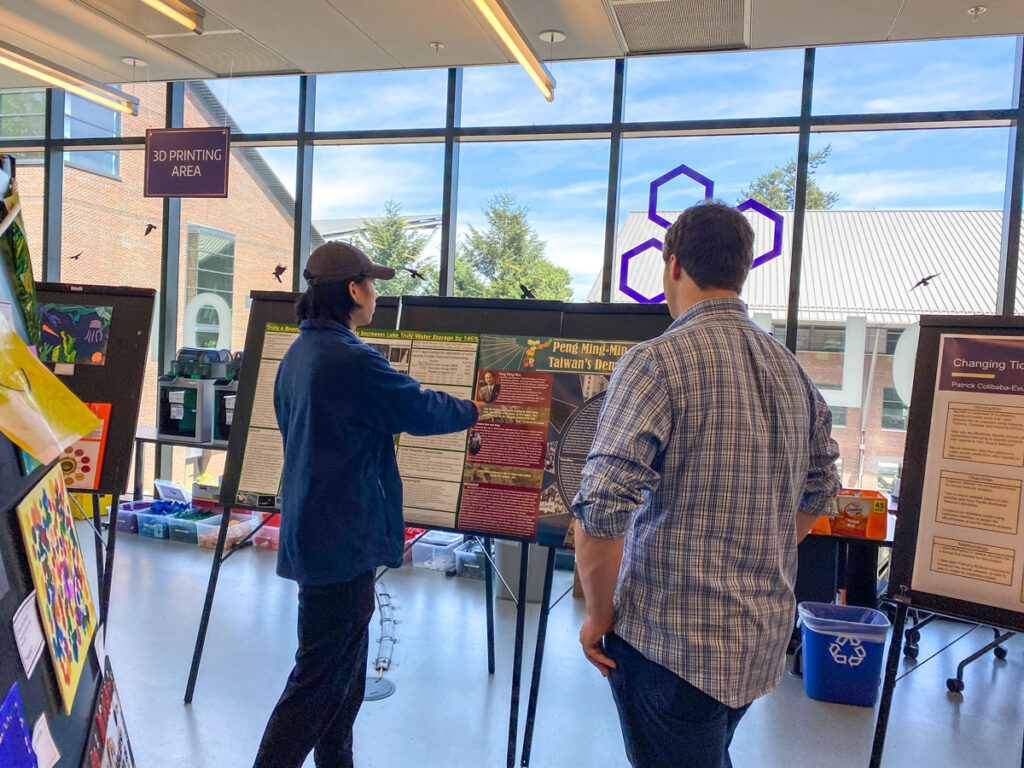
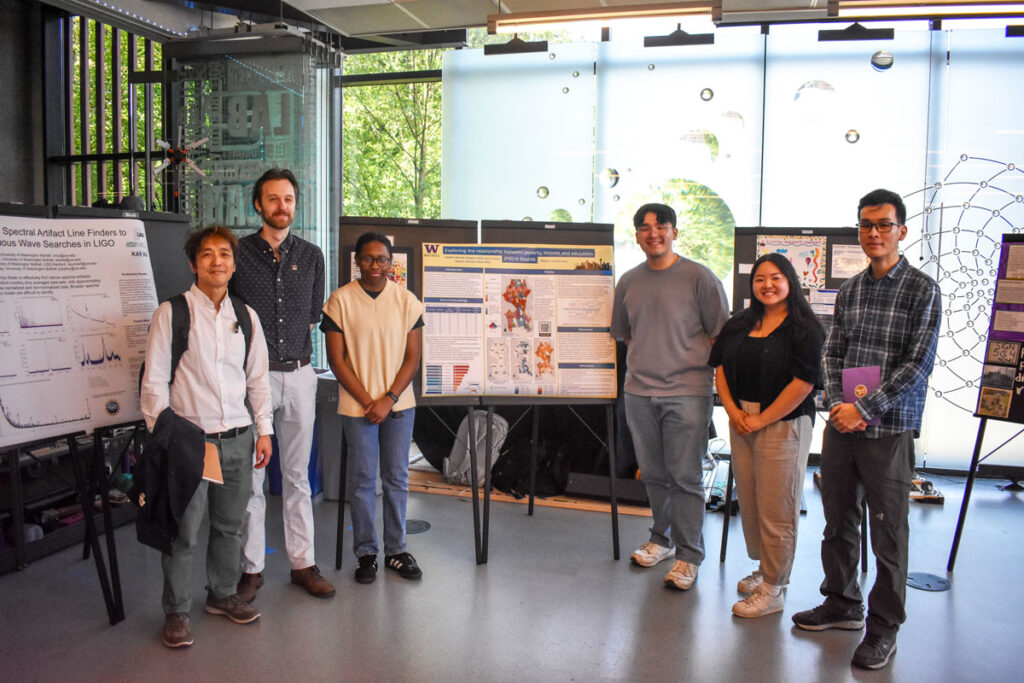
The link between income and education
The 19th century politician Horace Mann once said, “Education is the great equalizer.” In their project “Exploring the Relationship of Poverty, Income and Education,” a group of students used mapping analysis to examine the link between poverty percentage, income level and education.
Although one of the wealthiest cities in the nation, Seattle also has a stark economic divide so the team took a closer look at the Seattle Public Schools system in their analysis of 10 local high schools.
The group was mentored by Dr. Jin-Kyu Jung, professor in the School of IAS, and included Sakura Tabuchi (senior, Mathematical Thinking and Visualization), Sandra Awuah (junior, MTV), Minh Thuong Trinh (junior, Global Studies and MTV), Aaron Chau (senior, Media & Communication Studies) and Keegan Catlin (MCS ’24).
“It’s not a one-to-one ratio — there are some outliers — but by and large we found there is a pretty clear relationship between wealth inequality and educational outcomes within Seattle,” Catlin said.
In addition to creating a mapping visualization, the team was interested in digging deeper into the “why” behind the data. Through an online survey, they asked SPS counselors to provide input about the factors they believed were contributing to this income-education gap. Among the responses were issues such as campus safety and public funding.
The team noted that continued research into this area could be instrumental in helping to leverage improved educational opportunities as a tool for creating greater economic equality.
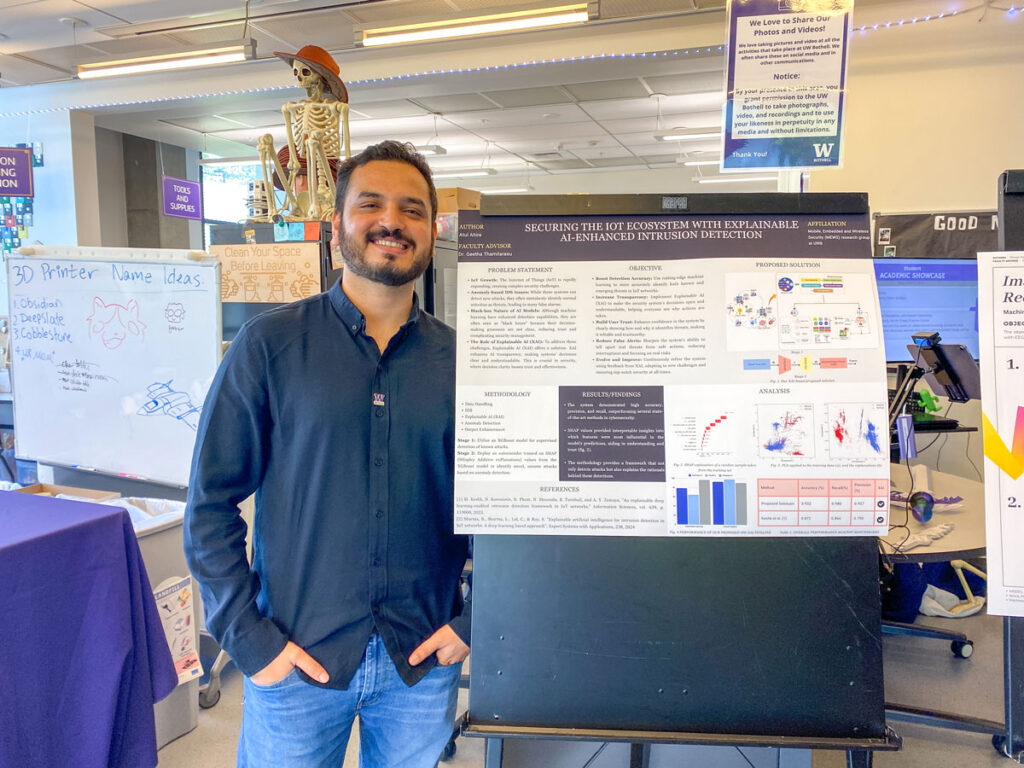
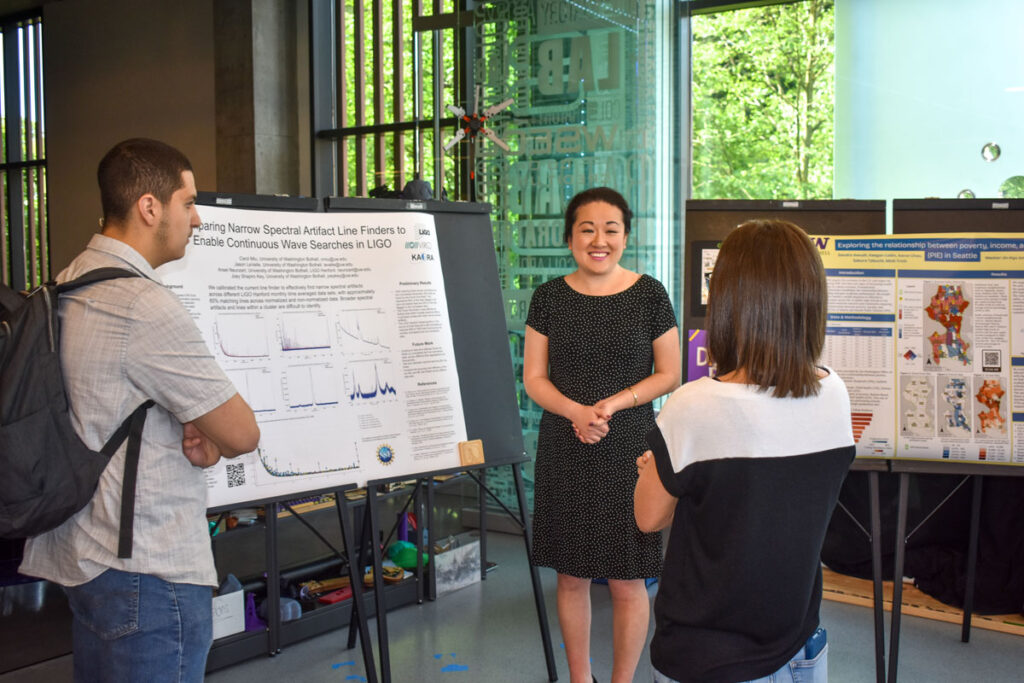
A celebration of student work
These projects are just a few of the many research and capstone projects UW Bothell students presented in the 2024 Student Academic Showcase. Some of the other presentations included:
- “Comparing Narrow Spectral Artifact Line Finders to Enable Continuous Wave Searches in LIGO,” presented by Carol Miu – mentored by Dr. Joey Shapiro Key, associate professor in the School of STEM.
- “We Might Have Been a River: An Exploration of Touch, Sound and Connection,” presented by Emma McVeigh – mentored by Dr. Ching-In Chen, assistant professor in the School of IAS.
- “Bloodworks Incentives and Blood Donation,” presented by Laura Simbulan – mentored by Dr. Sunita Iyer, associate teaching professor in the School of Nursing & Health Studies.
Want to learn more? Information about student projects can be found on the Student Academic Showcase webpage.
